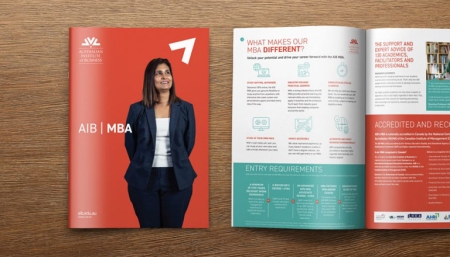6 skills to highlight on your post-MBA resume

When you graduate from business school, the next logical step for many is to successfully gain the employment that you desire, whether that be a promotion within your company or a new opportunity. While you will add your qualification to your resume, there are also a number of other key skills acquired as a result of the MBA experience that should be highlighted. The MBA is full of enriching content and learning experiences, so it’s important to demonstrate that on your resume. Remember, this is a guide for a generic resume, so it’s important to tailor each application to the unique role that you are applying for. If you’re interested in some of the key skills that you should highlight on your resume once you have completed your MBA – consider the below.
1. Ability to think outside of the box
Throughout your MBA, you will be challenged to think innovatively and present new ideas or ways of approaching a task. Every subject encourages strategic critical thinking through the application of theory in assessments, teaching students the importance of creating business plans, thinking long-term and applying problem solving skills.
In the competitive business world of today, employers want to be sure that you can bring a fresh perspective and be confident in presenting new ideas to the team. According to the American Management Association Survey, 72% of employers feel that critical thinking is key to their organisation’s success. It’s therefore imperative to highlight your ability to think strategically on your MBA resume, showcasing practical examples of when you used innovation to creatively problem solve and achieve something great.
2. Leadership abilities
Employers of MBA graduates want to know that they have strong leadership skills – not just through theory, but also through practice. In your MBA resume, you should give examples of when you’ve used the leadership skills that you’ve acquired, even if you haven’t been in a leadership position. This could be through uniting people behind a common goal, instilling a vision or prioritising the needs of the organisation above personal needs. The MBA program will help you groom your leadership abilities, but your MBA resume needs to sell them.
3. Exceptional interpersonal and communication skills
In almost every job description, there will be a requirement around communication skills. When you have successfully completed the MBA, you should have exceptional communication skills – not just through fine-tuning your writing and oral presentation skills in assessments, but also in the way you communicate your messages. Employers want to know that an MBA graduate can communicate clearly and with influence – this is key to leadership as well. In addition, you need to be able to communicate your ideas. Automobile executive Lee Iacocca said, “You can have brilliant ideas, but if you can’t get them across, your ideas won’t get you anywhere”.
4. Practical knowledge
Business author Tony Wager said “The world no longer cares about how much you know, but it cares how much you can do with what you know”. While that may be a harsh statement, it’s a good reminder of the benefits of AIB’s practical MBA, as theory is continuously blended with practice. If you’re able to show practical examples of what you can do with your knowledge, this will make for a very desirable MBA resume. You should use examples of how you applied theory in a real-world context, focusing on the actions taken and the results achieved.
5. Time management skills
Once you have graduated with an MBA, especially if you continued to work full-time while studying, you will be an expert in time management. MBAs learn to put every free hour to good use – reading during the commute to work, writing assignments on lunch breaks, and studying after the kids have gone to sleep. These refined time management skills are highly transferable in the workplace, as MBA graduates understand the importance of worker smarter. Therefore, these skills should be highlighted on post-MBA resumes and demonstrated during the recruitment process.
6. Holistic understanding of business
Most MBA students join the program as a specialist in one particular industry, but graduate with a broad knowledge of all areas of business. When someone understands how each function of a business fits in to the overall picture, they understand how decisions can affect other business units and their ability to think strategically is significantly increased. This knowledge is considered extremely valuable to employers and infers leadership qualities, and as such should be featured on MBA resumes.
What do you think?
Do you have any other skills to add to our list? An MBA resume will differ from your resume pre-MBA as you have a wealth of new skills and experience to highlight. We’d love to hear from MBA graduates and what they feel are the best skills to highlight when applying for jobs. Comment your views below and join the conversation.
The following sources were used to compile this article: Fast Company; Fast Company; Good Reads.
Explore more articles in our main blog page.





